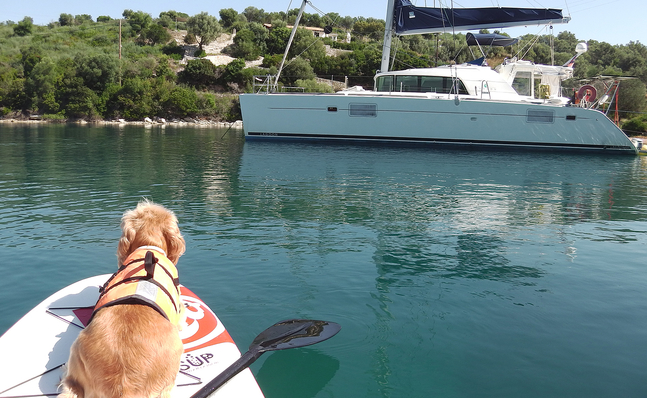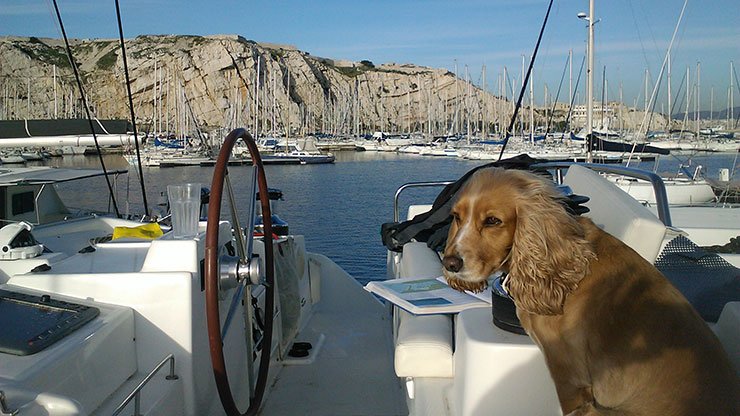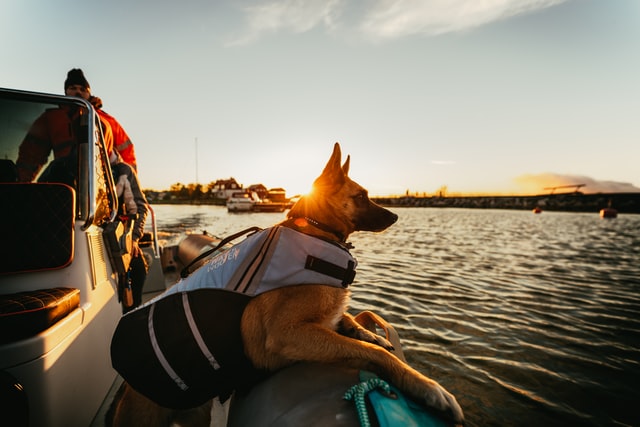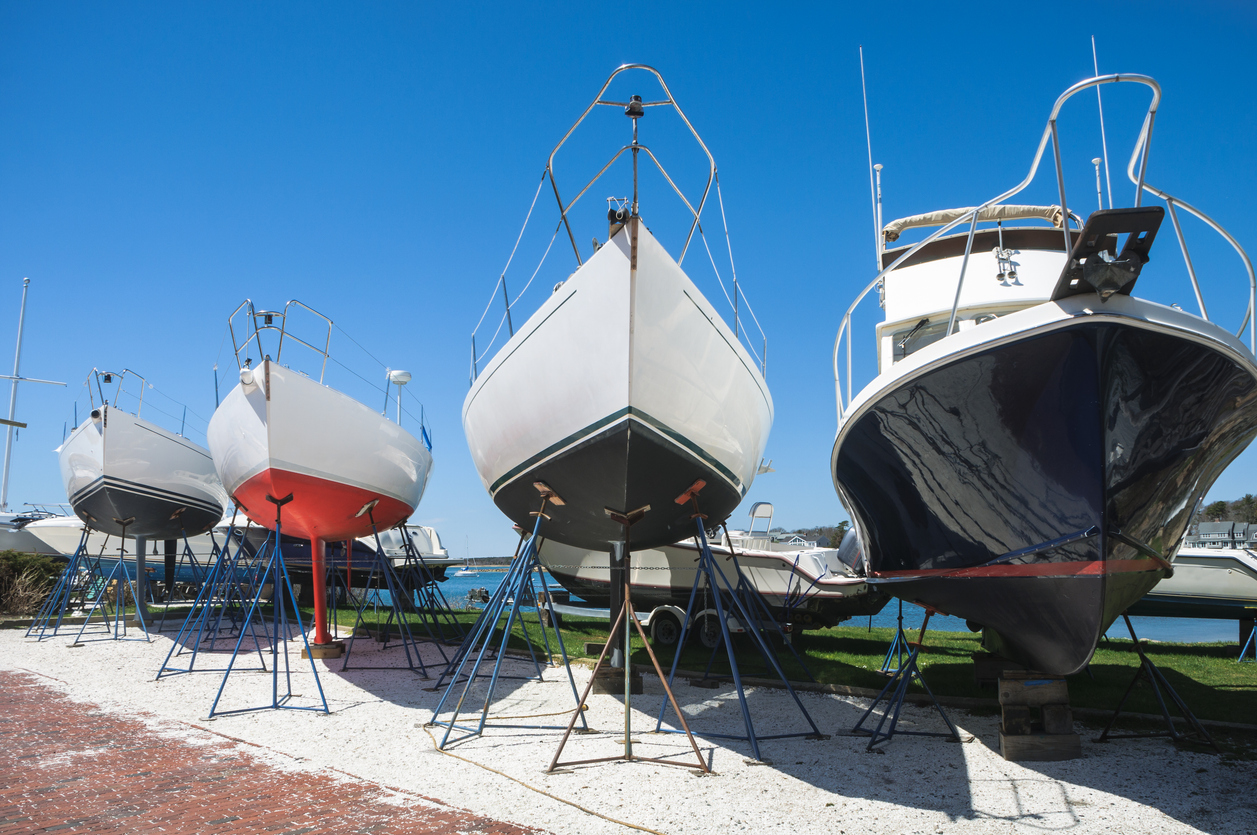If you enjoy boating, you probably enjoy taking your friends out on your boat to share the exhilaration of getting afloat – especially if those friends happen to have four legs and a fluffy tail.
But before you do it’s important to think about the steps you can take to keep your pet safe and happy while out on the water.
Top tips
- Give your pet a chance to get acquainted with the boat before setting sail
- Always keep plenty of fresh drinking water available
- Provide a shaded area – excessive sun exposure causes problems for humans and animals alike
- Protect their feet – dogs absorb heat through the pads on their feet and boat surfaces can get very hot in the sun
- Keep your first trip short, to let your dog get used to the boat’s surroundings and movement
A lifejacket can also help keep your pet safe while aboard your boat or around any body of water. Give your pet a chance to get used to wearing its life jacket before actually getting on a boat – and it’s a good idea to allow your pet to practice swimming while wearing its life jacket too.
So what if you want to take your furry friend further afield? Although the UK has relaxed its quarantine rules to an extent, it still only allows pets to be brought into the UK without quarantine under certain conditions.
You're not permitted to bring pets into the UK from another country by private boat or plane (unless you are arriving from Ireland). They must arrive by an approved transport company on an authorised route.
These rules are in place to keep the UK free from rabies and certain other diseases. The current regulations have been in force since 2012 when the UK brought its procedures into line with the European Union.

Pet Travel Scheme (PETS)
In order for pet dogs, cats and ferrets from any country to enter the UK without quarantine, they must comply with the requirements of the Pet Travel Scheme (PETS). These rules differ depending on the country or territory the pet is coming from.
The scheme also means that people in the UK can take their dogs, cats and ferrets to any country and bring them back to the UK (using an approved transport company) without the need for the animals to enter quarantine.
The rules do not permit pet owners to bring pets into the UK from a private boat or with any transport company that has not successfully negotiated an agreement with DEFRA called a Required Method of Operation (RMOP).
Pet owners are only able to use the routes and transport companies detailed at http://www.defra.gov.uk/wildlife-pets/pets/travel/pets/routes/ to bring their pets into the UK under the PETS, subject to the transport company’s agreement.
British Isles
The UK does however allow travel between Great Britain and Northern Ireland, Great Britain and the Isle of Man and Great Britain and the Channel Islands. The UK does not currently require documentation for these movements although you may wish to travel with your pet’s passport, if available.
As it is prohibited to bring a pet into the UK on a private boat from another country (unless you are arriving from Ireland), PETS advises that you keep a ship’s log, noting which ports you have entered in order to avoid problems upon re-entry to the UK.
In the event of problems at sea which, for example, resulted in the vessel making an emergency stop in another county for repairs, your cat, dog or ferret could require 6 months quarantine on re-entry to the UK. It is therefore recommended that your cat/dog is prepared under the Pet Travel Scheme (PETS) to avoid such risks.

It’s a dog’s life!
Meet Molly. Molly is one very lucky canine, currently cruising the Caribbean on board her British owners’ catamaran ‘Two Drifters’. Her owner explains, however, that it’s not always plain sailing when island hopping with a furry friend!
“Every new Caribbean country has its own set of rules to adhere to,” says Fergus Dunipace, RYA Gold Member and skipper aboard Two Drifters. “On the plus side, the French West Indies – Martinique, Guadeloupe, The Saints, Marie Galant, St. Barts and French St. Martin – are part of the territory of the EU and dogs with a Pet Passport, like Molly, are made very welcome.
“Outside of the French islands, it does get a little more complicated. But with persistence it is possible to get four paws ashore. So far Molly has been approved entry into Barbados, St. Lucia, the BVIs, Turks and Caicos, and the Bahamas.

“The process of getting Molly ashore can be quite time consuming, expensive and involves finding a vet, so we only do it for islands where we plan to stay for a week or more. If less time is anticipated, then Molly stays on the boat and gets daily swims rather than walks.
“Cruising with an animal undoubtedly adds a new level to the bureaucratic hurdles of cruising, but we wouldn’t be on this trip without Molly. She was a perfect crew member on our voyage across the Atlantic. She makes our day so worthwhile and she adores swimming in the sea and paddling off a beach, so we feel she’s getting lots of benefits to being a salty Caribbean sea-dog!”
Find out more…
The RYA aims to provide members with practical advice on all aspects of boating, ranging from boating with pets abroad to legal issues relating to registration, consumer disputes, salvage and VAT – to name just a few.
Join today and you can support the RYA in protecting your boating rights and freedoms. Take advantage of free advice and support on all aspects of your boating, as well as enjoying a range of fantastic personal member offers. Find out more by calling 023 8060 4159, email member.services@rya.org.uk or visit www.rya.org.uk
Further information is also available from the Pet Travel Scheme on 0370 241 1710 or visit https://www.gov.uk/pet-travel-information-for-pet-owners

